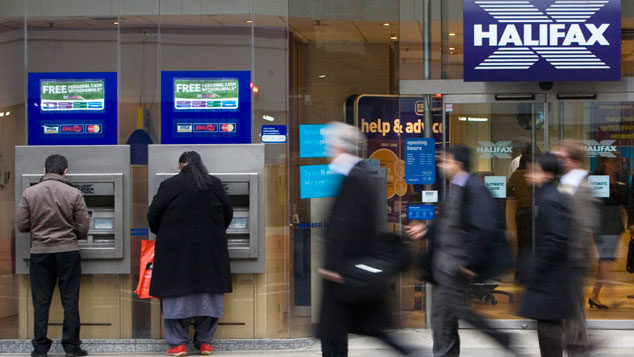
As I’m out of the office this week, I’ve been taking a flick through the MoneyWeek and Money Morning archives.
It’s always interesting to see how events were reported at the time. It’s also interesting to see how the authorities reacted.
The Money Morning below comes from 20 March 2008. By this point, Northern Rock had long since imploded. And in the US, Bear Stearns had just collapsed a few days before, and been rescued by the Federal Reserve.
Questions were now being asked about Lehman Brothers too, but the authorities were still desperately trying to hold things together. And in the UK, nervous eyes were being cast on the former building societies, wondering who would be next.
Amid the febrile atmosphere, no one wanted to see queues forming outside another British bank.
And so when rumours started flying about HBOS (which would eventually be bought by Lloyds TSB after September 2008, in turn necessitating the nationalisation of the latter), the authorities were quick to try to shoot the messenger…
Why you should keep avoiding banking shares
(Money Morning, 20 March 2008)
If you needed any more proof as to why you shouldn’t buy banking shares just now, yesterday provided it in spades.
Shares in HBOS, the UK’s biggest mortgage lender, took an early dive of 17%, apparently on an unfounded rumour, spread around the City by email, that it was trying to hold an emergency meeting with the Bank of England this weekend. Other banking shares quickly plunged in sympathy.
It wasn’t true, and HBOS denied the rumour categorically, as did the Bank of England. The shares recovered somewhat, but still ended the day down 7%.
The Financial Services Authority (FSA) said it is investigating, and looks set to come down hard if it finds any evidence of malicious intent. Some reckon that one or more traders with short positions may have spread the rumour to profit from the falls.
But the FSA may have a hard time. After all, the very fact that this anonymous email could cause such havoc shows how fragile confidence is in the banks. Being short financials certainly looks a far more sensible position for now than being long.
Hedge funds and short-sellers are going to come in for a lot of flak after the share slump in HBOS. And it’s true that in such a febrile atmosphere, spreading false rumours is dangerous, frankly, and something the FSA should be watching out for.
At the same time, short-selling is a perfectly legitimate activity. And it’s perfectly rational to be short the UK banking sector. Just a year ago, the idea that you could spark a double-digit fall in the shares of one of the UK’s biggest banks simply by sending an anonymous email round a few trading desks would have been ridiculous.
But then, a year ago, the idea of a run on a British bank – even a jumped-up bit player like Northern Rock – would have been laughable. Now we’ve seen the demise of a venerable Wall Street institution too, no one seems safe.
And like it or not, there are good reasons to be concerned about our banks.
Earlier this week, we held our usual monthly MoneyWeek Roundtable meeting, and everyone there believed that shareholders in UK banks are likely to be wiped out by the time this financial crisis is done with, due to fund raising, government interventions, and whatever else it takes to prop up their balance sheets.
It’s happened before, in Japan, not more than two decades ago, so it could happen here.
Banks: the guarantees are for savers, not shareholders
To make it clear – there was nothing to the rumours over HBOS yesterday. And if your savings are with a bank (or building society – they all rely on external funding to some extent), then the reality is that as long as you don’t hold more than the guaranteed £35,000 with any one institution, you should be safe – I wouldn’t be queueing round the block to pull out your money on the first sniff of a funding rumour.
Northern Rock showed that the government will not let savers (ie voters) lose their money – that really would cause a meltdown in the financial system. And having been through Northern Rock, I suspect the next crisis (and there is likely to be another one) will be dealt with far more swiftly.
But as Northern Rock also made plain (and Bear Stearns even plainer), when it comes to shareholders, there’s no such guarantee.
In short, I might be happy to keep my money in a bank for the moment, but I wouldn’t be happy to invest in one.